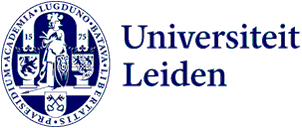Lecture
LUCIR Seminar: Power, Ideas, and International Orders: Contrasting the Classical Mediterranean and the Indian Ocean
- Date
- Monday 17 April 2023
- Time
- Address
-
Wijnhaven
Turfmarkt 99
2511 DP The Hague - Room
- room 3.16
International systems as material and ideational constructs
For long, the classical Greco-Roman Mediterranean has provided a major source of theorizing about International Relations and world order. What if other regions had been the source of similar theorizing?
Approaching international systems as material and ideational constructs, we compare the ideational influence of Greece and geopolitical control Rome in the Mediterranean (8th century BCE—4th century CE) with the ideational influence of India and geopolitical role of China in the eastern Indian Ocean centering on modern Southeast Asia (4th—15th century CE). Despite apparent similarities, there are striking differences. First, they displayed different approaches to the provision of collective goods by the leading power. Rome built a powerful empire and promoted trade by directly controlling the trade routes, with itself as the major beneficiary. The trading system in eastern Indian Ocean was less coercive and more open with more equitable benefits.
Second, the two regions displayed different ideational dynamics. While the “Indianization” of Southeast Asia and “Hellenization” of the Mediterranean show some similarities, the former was substantially more peaceful and a two-way process. We explain these differences and conclude that the two regions offer powerfully contrasting images of international systems/orders. The Mediterranean conforms to the dominant theories of hegemony which stress how hegemons create/shape international orders, while the Indian Ocean suggests how “local initiative” can be a central basis of international systems/orders. Simply put, it is the Indian Ocean that offers a powerful classical precedent for open, non-hegemonic international orders compared to the closed and hegemonic Greco-Roman Mediterranean.
(Manjeet Pardesi is working on this project with Amitav Acharya)

About the speaker
Manjeet S. Pardesi is Associate Professor of International Relations in the Political Science and International Relations Programme, and Asia Research Fellow at the Centre for Strategic Studies at Victoria University of Wellington. He is the co-author of The Sino-Indian Rivalry: Implications for Global Order (with Sumit Ganguly and William R. Thompson, Cambridge University Press, forthcoming). He is currently working on a book project tentatively titled Limits of Hegemony: Power, Ideas, and Order in the Mediterranean and the Indian Ocean (with Amitav Acharya). His articles have appeared in European Journal of International Relations, Security Studies, Survival, Global Studies Quarterly, Asian Security, Australian Journal of International Affairs, International Politics, Commonwealth & Comparative Politics, International Studies Perspectives, Nonproliferation Review, Air & Space Power Journal (of the United States Air Force), The Fletcher Forum of World Affairs, World Policy Journal, India Review, Defense and Security Analysis, and in several edited book volumes. He is the co-editor of The Oxford Handbook of India’s National Security (Oxford, 2018) and India’s Military Modernization: Challenges and Prospects (Oxford, 2014). He is the Managing Editor of the journal Asian Security (since June 2018).
About the discussants
Beatrix-Futak Campbell, Assistant Professor of International Relations at the University of Leiden, will serve as a discussant. Nicolas Blarel, Associate Professor of International Relations and Director of Studies at the Institute of Political Science, will moderate the discussion.
This event is open to the public; all are welcome.
